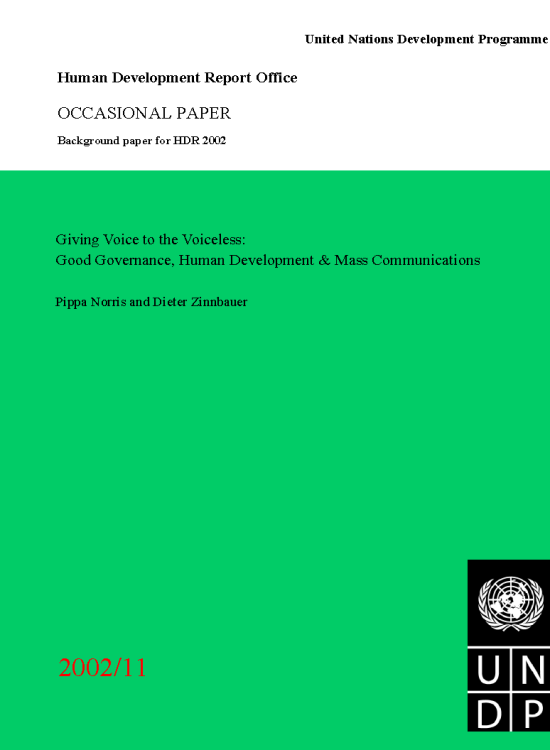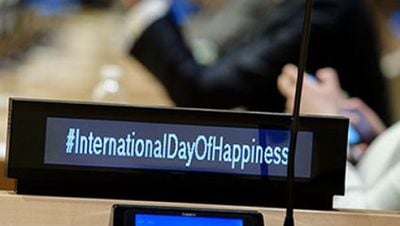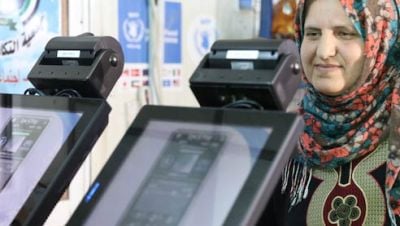Giving Voice to the Voiceless
Good Governance, Human Development & Mass Communications

Download Report by Language
Document
norris-zinnbauer2002.pdf
(372.74 KB)
Citation
Norris, Pippa, Zinnbauer, Dieter. 2002. Giving Voice to the Voiceless: Good Governance, Human Development & Mass Communications. New York.
Giving Voice to the Voiceless
Good Governance, Human Development & Mass Communications
Posted on: January 01, 2002
The growth in electoral democracies presents many potential opportunities for human development. Yet in practice transitional and consolidating democracies often remain fragile and incomplete, lacking strong institutions essential for effective voice and accountability, including freedom of expression and widespread opportunities for civic engagement. What can be done to strengthen democratic development and, in particular what is the role of the media in this process? Part I suggests that the mass media will have a positive impact on good governance and human development if they function effectively as a watchdog holding the powerful to account and as a civic forum facilitating a diversity of voices in public debate. Yet in practice the press is often limited in these roles. Liberal theories have long stressed the importance of an independent fourth estate as a check on the abuse of power. The study theorizes that this is necessary but not sufficient, in particular media systems strengthen good governance and promote positive development outcomes most effectively under two conditions: (i) where there is an unfettered and independent free press, and (ii) where there is widespread access to mass communications. Part II operationalizes this typology then compares media systems around the world1. Part III examines the cross-national evidence for the impact of these patterns. The study confirms that media systems characterized by widespread mass access and by an independent press are most closely associated with systematic indicators of good governance and human development. In particular, nations with these types of media system experience less corruption, greater administrative efficiency, higher political stability, and more effective rule of law, as well as better development outcomes such as higher per capita income, greater literacy, less economic inequality, lower infant mortality rates, and greater public spending on health. Part IV provides detailed case studies illustrating this relationship in particular countries. The conclusion considers the policy implications, suggesting practical steps to strengthen the channels of mass communications in poorer societies lacking either widespread access or freedom of the press.

